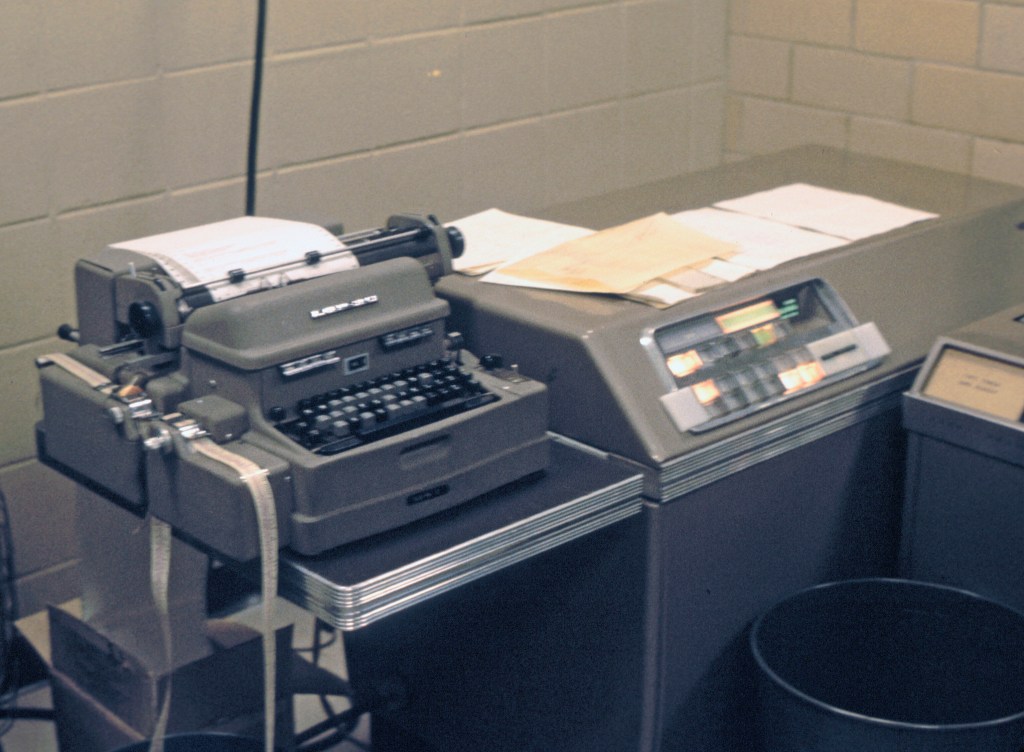“There is something about the internet that isn’t working anymore,” is the line that opens filmmaker Jonathan Minard‘s short documentary on Deep Lab—a group of women hackers, artists, and theorists who gathered at Carnegie Mellon University in December to answer the question of what, exactly, that disquieting “something” is. The film premieres on Motherboard today.
What Deep Lab represents is just as hard to pin down as the “something” invoked in the opening minutes of Minard’s short film. Is it a book, a lecture series, or Minard’s documentary—all of which were put together in under a month? Is it an ethos? Is it feminist? Is Deep Lab a charrette, a dugnad, or a “congress,” as its participants called it?
Videos by VICE
It’s hard to say what Deep Lab is in part because of its scattershot nature, both in terms of its products and its focus. The Deep Lab book—available for free online—is a 242-page collection of essays, fragments, and reflections on everything from encryption to cyberfeminism penned by a dozen different authors with divergent interests.
Deep Lab’s interdisciplinary approach is perhaps necessary to parse the complicated realities of the post-Snowden age. Since Snowden’s revelations regarding the scope of the US government’s online surveillance program broke in 2013, it seems as though the internet has taken on a new, dark, and confusing identity.
Larger-than-life interests in the form of corporate and governmental surveillance are now at play in our daily interactions on the internet, and interpreting those outsized realities so we can understand them is no small challenge.
“As an artist, I want to reinterpret culture in a way that society can parse.” said Addie Wagenknecht, the multimedia artist who organized Deep Lab during her ongoing fellowship at the STUDIO for Creative Inquiry at Carnegie Mellon. “You take these big events and try to encapsulate them in a way that you can present them concisely and quickly so that it’s defined for people who experience that piece or exhibition.”
A chapter in the book compiled by data artist Ingrid Burrington is comprised of 20 pages listing objects pulled from the Pentagon’s 1033 program—which has supplied military hardware to local police for decades—in plain black text. After four solid pages of “5.56 MILLIMETRE RIFLE,” it becomes clear that Deep Lab is not only artistically compelling and tantalizingly oblique in how it approaches issues of life and death, but deadly serious.
According to Wagenknecht, Deep Lab is also a medium for women to do more than just participate in digital culture—the tech world has been notoriously resistant to opening its ranks to women—but to interpret and define it, and to share and create tools and techniques for survival within it.
“Maybe for women, we’re more aware of protecting ourselves online because it’s always been a social problem,” Wagenknecht told me. “Think of contacting friends before you leave a party late at night so people can make sure you got home safe—men maybe don’t think about that and women always do. And it’s those same roles on the web. How do you protect yourself from a hack or doxing? The power shifts to the person with more knowledge.”

Deep Lab member Ingrid Burrington. Screengrab: Deep Lab.
Deep Lab member Harlo Holmes, who works as the head of metadata for the Guardian Project, designed a system for victims of cyber bullying on Twitter to easily and painlessly map the digital connections between harassers called Foxy Doxxing.
There were also men present at Deep Lab, including Minard, though they weren’t collaborators per se. Multimedia artist Golan Levin is the director of STUDIO, where Deep Lab congregated. Playing host to Deep Lab, Levin—along with Wagenknecht, who was the group’s chief mastermind and organizer—was part of Deep Lab’s development from the very beginning.
“I’m enormously proud,” Levin said. “You’re looking at a book, a documentary, and a lecture series that was put together by a dozen people in a month. I think they’re side-effects of what Deep Lab actually was.”
So, to return to the question that started this article—what is Deep Lab?—Levin provided his own answer: “It’s punk.”
But even more than punk—more than a book, a documentary, a gathering, or a lecture series—Deep Lab is a beginning, according to Allison Burtch, a resident at the Brooklyn-based Eyebeam Art and Technology Center and Deep Lab member.

Addie Wagenknecht, Harlo Holmes, and two other Deep Lab members at work. Screengrab: Deep Lab.
“I don’t think Deep Lab has ended; it was the beginning of a camaraderie,” Burtch said. “Yeah, we did this thing and did some talks, but it’s not ending. This is the beginning of different affiliations with people. It was awesome. “
According to Wagenknecht, a Deep Lab lecture series is planned for later in 2015, and will take place at venues in New York City. Until then, we have a book, several lectures, and a documentary to contemplate what Deep Lab is, and what it all means.



